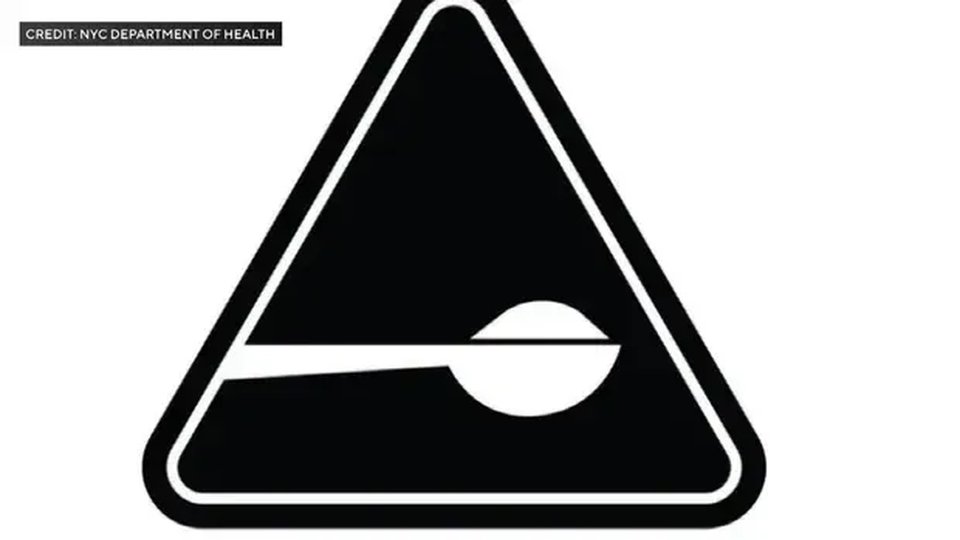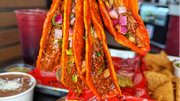Operations
Will NYC's added-sugar ruling force national menu reform?
Given that many municipalities often follow New York City’s lead, restaurant operators should anticipate the possibility of similar regulations being adopted elsewhere, said Michael Schwab, chair of the Food & Beverage Group, Moritt Hock & Hamroff.

November 25, 2025 by Michael Schwab — Partner and Head of the Food & Beverage Group, Moritt Hock & Hamroff LLP
On Oct. 4, New York City became the first municipality in the country to require certain restaurants to disclose whether a food product they sell contains more than 50 grams of added sugar.
Under The Sweet Truth Act, any restaurant with more than 15 franchises nationwide must now place a warning sign on menus next to these items. Businesses that fail to comply will receive a $200 fine for each violation, will receive negative marks on their health rating, and may be subject to additional inspections.
Given the significant negative financial and reputational impacts that non-compliance may have for a restaurant, owners and operators of affected franchises should take this rule seriously. Furthermore, as consumers and governments adopt more health-conscious attitudes, this rule is likely a harbinger of what future regulations may look like.
Below are the key details about the Sweet Truth rule, along with tips for franchise owners and operators to ensure compliance. Owners and operators should review their policies, procedures, and training programs to confirm they meet these requirements
What is covered under the rule
The rule applies to any food item sold by a restaurant that is either a repackaged product or a non-packaged equivalent that closely resembles a packaged item. Notably, original restaurant-only creations and made-to-order items, such as milkshakes, that do not have a packaged counterpart are exempt from this regulation.
The food products most likely to be caught up in this rule are fountain sodas or other bottled sugary drinks, prepackaged desserts, combo meals, salad dressings/sauces, and some specialty drinks, like coffee and smoothies.
If a food item falls within the Rule, the added sugar warning symbol, , must appear next to the affected item. The symbol must be at least as large as the largest letter on the menu and accompanied by a clear warning statement indicating that excessive consumption of added sugars is associated with increased risk of weight gain, Type II diabetes, and tooth decay.
, must appear next to the affected item. The symbol must be at least as large as the largest letter on the menu and accompanied by a clear warning statement indicating that excessive consumption of added sugars is associated with increased risk of weight gain, Type II diabetes, and tooth decay.
Who is affected
This regulation applies exclusively to franchised restaurants operating in New York City that have more than 15 locations nationwide. The threshold of 15 locations was deliberately chosen to align with similar federal food disclosure requirements, which typically apply to franchises with 20 or more locations.
These rules apply to both in-restaurant menus and those published online. Third-party food delivery platforms, such as Uber Eats, DoorDash and Postmates, are exempt from the rule and not required to display the label. However, because these platforms often source menu content directly from restaurant websites, owners and operators can reasonably expect that compliance will be reflected by default.
A precursor to future regulations?
It's important for restaurant owners to understand the intent and implications of the Sweet Truth rule, as it may signal the beginning of broader regulatory trends. This initiative reflects a growing consumer demand for healthier food options and increased transparency about nutritional content.
In response, governments are implementing policies that empower consumers with clearer and more transparent information. Given that many municipalities often follow New York City's lead, restaurant operators should anticipate the possibility of similar regulations being adopted elsewhere. In fact, the New York State Legislature is already considering a comparable law that would extend these requirements statewide.
Ultimately, the Sweet Truth rule may serve as a blueprint for future health-focused regulations. Restaurant owners who proactively adapt now will be better positioned to navigate, and even thrive in, this evolving regulatory landscape.
About Michael Schwab
Michael J. Schwab has over 20 years of experience advising clients in the beverage alcohol, dietary supplement, and food industries. He provides comprehensive counsel on regulatory compliance, labeling approvals, distribution agreements, advertising, and trade practices. His expertise includes trademark and copyright strategy, global portfolio management, licensing, and enforcement against counterfeiting and gray market goods. He also handles IP due diligence for mergers and acquisitions and negotiates complex agreements.
 ChatGPT
ChatGPT Grok
Grok Perplexity
Perplexity Claude
Claude















